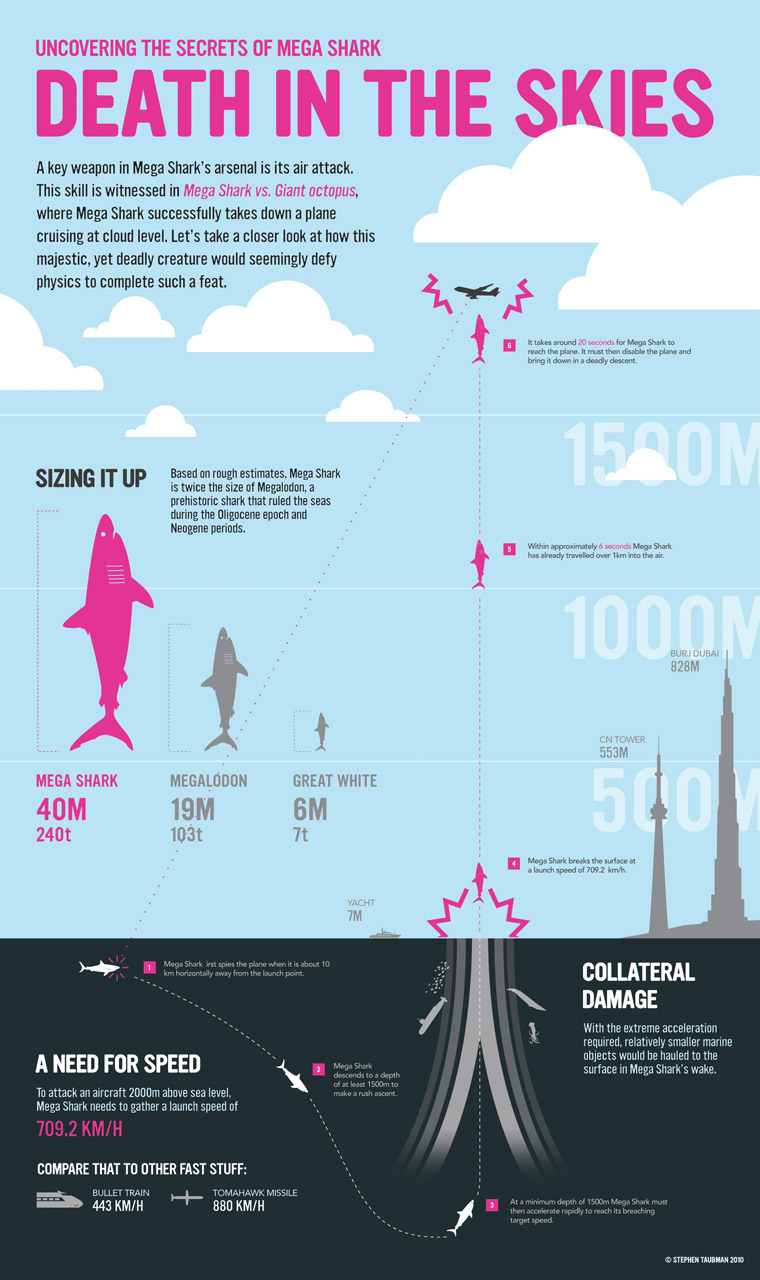 One of the best things about my job at UMW is that I’ve been able to teach a wide range of courses across a few disciplines. So far I’ve taught nine different courses, and one of them six (soon to be seven) different times.
One of the best things about my job at UMW is that I’ve been able to teach a wide range of courses across a few disciplines. So far I’ve taught nine different courses, and one of them six (soon to be seven) different times.
- The Internet Course, Spring 2014 (with Paul Bond)
- True Crime: America’s Most Wanted, Fall 2013 (with Paul Bond)
- Hardboiled: 20th Century US Detective Fiction, Fall 2012 (with Paul Bond)
- Digital Storytelling (a.k.a. ds106), Spring 2010, Fall 2010, Spring 2011, Summer 2011 (The Summer of Oblivion), Spring 2012, and Summer 2013 (with DTLT and half the web)
- Discipline & Punish: Early American Criminal Narratives, Summer 2007
- Museum Interpretation and Design, Spring 2007 (
Class site)Archived - English Composition, Fall 2006
- Love, Time, and the Exotic in Literature, Summer 2006
As the list above illustrates, ever since ds106 I’ve been effectively co-teaching all my courses. First alongside Martha Burtis (and a host of characters in ds106), then Alan Levine, and more recently with Paul Bond. ds106 taught me how amazing collaborative teaching can be. What’s more, the majority of collaborative work is done amongst adjuncts and/or staff that are doing this in addition to their day job for little or no pay.* I’m looking forward to more and better collaborations for just about everything I’ll be doing in the future. ds106 changed my life!
As for this post, it’s just a way to jot down some courses I want to teach sometime in the relatively near future. I may never get the chance, but at least I’ll have the record of my best intentions.
Pirates, Zombies, and Copyright
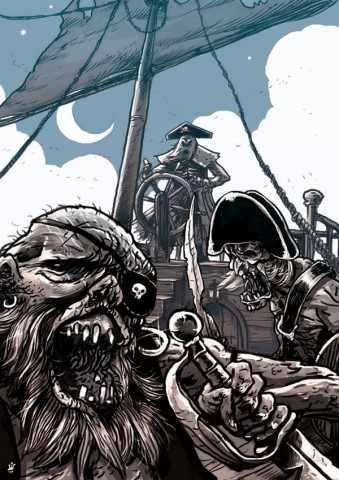 I’ve done a fullblown presentation and a series of blog posts about this course idea, but I still haven;t taught it. The idea would be to look at the cultural history of pirates and zombies over the last three hundred years leading up to their current re-valuation in contemporary culture as a popular frame for copyright. How does piracy and the zombie apocalypse inform the global discussion around international trade, undead labor, and the role of the state in protecting virutal property in the twenty-first century. This would make a fun Freshman Seminar or AMerican Studies special topics course, and I might propose it for next Spring is the stars align.
I’ve done a fullblown presentation and a series of blog posts about this course idea, but I still haven;t taught it. The idea would be to look at the cultural history of pirates and zombies over the last three hundred years leading up to their current re-valuation in contemporary culture as a popular frame for copyright. How does piracy and the zombie apocalypse inform the global discussion around international trade, undead labor, and the role of the state in protecting virutal property in the twenty-first century. This would make a fun Freshman Seminar or AMerican Studies special topics course, and I might propose it for next Spring is the stars align.
A National Film Registry MOOC
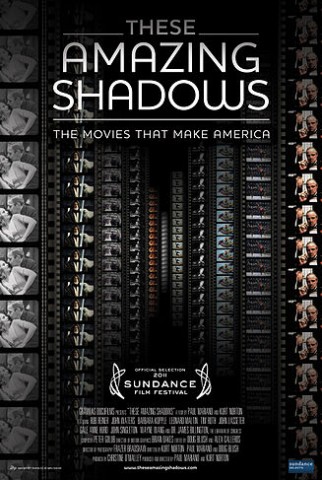 I’ve already written about this idea, but I still want to teach an open class about how the National Film Registry works and have tons of folks writing about film, creating propaganda campaigns to get their favorite films on the registry, and generally going nuts. This class is clear as day to me how awesome it could be because the possibilities are so rich and so varied. Here’ s what I wrote:
I’ve already written about this idea, but I still want to teach an open class about how the National Film Registry works and have tons of folks writing about film, creating propaganda campaigns to get their favorite films on the registry, and generally going nuts. This class is clear as day to me how awesome it could be because the possibilities are so rich and so varied. Here’ s what I wrote:
Right now I’m thinking the class could sample a few films from each genre chosen for preservation, and then ask some basic questions about how the criteria of “artistically, culturally, and socially significant” might be understood for a number of those films….as of now there are 575 films on the National Film Registry’s list, and if enough people play along with this class—we might be able to cover quite a few of them within the wider community. I’ll pull a few examples that I’ll analyze and share out from each genre to talk about while using this as a way of encouraging others to pick a film on the list and share back their findings through their blog. I like how this allows for a lot of freedom and self-direction for anyone taking the course.
Whether or not I teach this course, it needs to be taught. In fact, it already may be, and if it is I am going to take it.
Domain of One’s Own
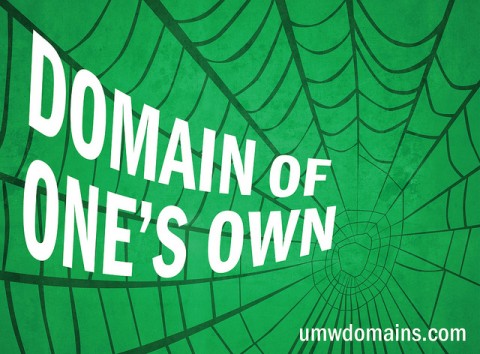 DTLT has already framed the curriculum for this course as a part fo the Domain of One’s Own Faculty Initiative. We would just need to bulk it up a bit for a fifteen week version. Ideally we would co-teach this as a group. I imagine it as a Freshman Seminar that could live in the Computer Science department. We could do one or two sections, and use it as way to dig deeper into the computational thinking/seven ways to think like the web literacy vision we’ve been talking about in relationship to UMW Domains.
DTLT has already framed the curriculum for this course as a part fo the Domain of One’s Own Faculty Initiative. We would just need to bulk it up a bit for a fifteen week version. Ideally we would co-teach this as a group. I imagine it as a Freshman Seminar that could live in the Computer Science department. We could do one or two sections, and use it as way to dig deeper into the computational thinking/seven ways to think like the web literacy vision we’ve been talking about in relationship to UMW Domains.
Italy: the Years of Lead
 I really, really want to teach a Freshman Seminar alongside Antonella about the social and political turmoil the rocked Italy for more than a decade from the late 1960s through the early 1980s, as called the Years of Lead. The focus would be on the 1970s in particular, looking at the various political, social, and cultural forces that led to unprecedented levels of all-out war on the streets of Italy between various political groups, the police, and organzied crime. One of the major themes of the course would be an examination of political terrorism in the 1970s, with the focal point being 1977. This cultural history would be framed through news media, literature, film, and TV. What’s more, I can sneak in a whole genre of Italian b-movies known as Poliziottesco
I really, really want to teach a Freshman Seminar alongside Antonella about the social and political turmoil the rocked Italy for more than a decade from the late 1960s through the early 1980s, as called the Years of Lead. The focus would be on the 1970s in particular, looking at the various political, social, and cultural forces that led to unprecedented levels of all-out war on the streets of Italy between various political groups, the police, and organzied crime. One of the major themes of the course would be an examination of political terrorism in the 1970s, with the focal point being 1977. This cultural history would be framed through news media, literature, film, and TV. What’s more, I can sneak in a whole genre of Italian b-movies known as Poliziottesco 
The 1980s
 I want to teach a course with GNA Garcia about the 1980s. I would want it to be a fullblown cultural memory course in which we would read, share, and discuss ona wide sereis of topics from the 198s. For example, a week or two dedicated to politics in the 1980s, a week to music in the 80s, film in the 80s, TV, fashion, computer culture, labor, videogames, etc. There would be a few particular texts, some listening parties, screenings, etc. I thinking about about it like a happening of the decade, a series of impressionistic approaches to trying to help a group of students born in the mid-90s gain a sense of the decade somewhat holistically. GNA and I are the 80s.
I want to teach a course with GNA Garcia about the 1980s. I would want it to be a fullblown cultural memory course in which we would read, share, and discuss ona wide sereis of topics from the 198s. For example, a week or two dedicated to politics in the 1980s, a week to music in the 80s, film in the 80s, TV, fashion, computer culture, labor, videogames, etc. There would be a few particular texts, some listening parties, screenings, etc. I thinking about about it like a happening of the decade, a series of impressionistic approaches to trying to help a group of students born in the mid-90s gain a sense of the decade somewhat holistically. GNA and I are the 80s.
Sharks: A Cultural History
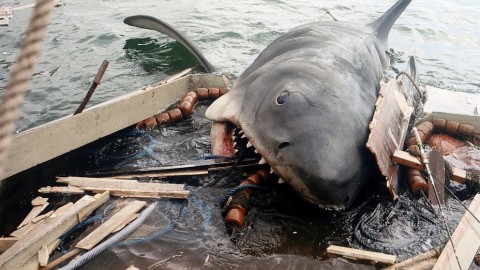 This might be best taught alongside a biologist (or a Tom Woodward) that specializes in sharks.This course would oscillate between the science and cultural imagination of this predatory species of fish. Since Jaws sharks have remained one of the most powerful icons of the world we live in—providing a frame for our violent fascination with power, violence, and absurdity with everything from Wall Street to the internet. This class would chum a cultural trail to try and bait one of our most deeply seated fears: the invisible predator.
This might be best taught alongside a biologist (or a Tom Woodward) that specializes in sharks.This course would oscillate between the science and cultural imagination of this predatory species of fish. Since Jaws sharks have remained one of the most powerful icons of the world we live in—providing a frame for our violent fascination with power, violence, and absurdity with everything from Wall Street to the internet. This class would chum a cultural trail to try and bait one of our most deeply seated fears: the invisible predator.
There are several more I want to teach like a course on Mario Bava’s films (Paul Bond and I are ready for this one). A course about the politics of horror movies, and yet another class about film genres more generally to cut across film categories. There’s also a course I taught at CUNY’s Queens College on the literature of captivity narratives that I’ve been aching to revive in a new form. But, as is often the case, this post is already much too long and I have other work to do, so I’ll stop it here for now. Hopefully they’ll be a part two sometime soon so that I can spell a few of these out in more detail.
_________________________________
* There are much larger issues with the devaluation of intellectual labor in highered, and the adjunct army is one major part of that complex. Part of the horror of that situation is who could afford to collaboratively teach on the wages offered? What’s more, how can what many refer to as one of the most innovative approaches to teaching online (namely ds106) come out of a motley band of edtech geeks, staff, adjuncts, and other folks on the margins of what we consider the traditional academy?


You see what you need is internet dating, where a group of people could come together, find course suggestions and develop them and so on. I think this could be a fun site to build. Suggested URL moocmooch.com
One thing I find interesting about MOOCs (even the pesky cMOOCs) is they still seem to have a figurehead. For the purposes of buzzwords and laying claim to inventing things, could we postulate a cloud lecturer (borgademic? substrateacher) where multiple lecturers / experts played the teacher, and so perhaps the current “single point of failure” lecturer model could be improved?
Guessing you’ve seen http://www.imdb.com/title/tt0377569/?
Pat, I met Paul there, and it was teaching love at first site. Hell, we hired Tim Owens as a result of that course. When you think about it, that’s exactly what ds106 offered so many of us, an extension and deppening of our online networks—and we didn;t even have to date, just make a GIF or two.
I met Paul there, and it was teaching love at first site. Hell, we hired Tim Owens as a result of that course. When you think about it, that’s exactly what ds106 offered so many of us, an extension and deppening of our online networks—and we didn;t even have to date, just make a GIF or two.
Actually, ds106 was my moocmooch
You gif without even dating. No wonder your state is Virginia.
Was thinking of others – always wondered where edu tech people bump into each other
When thinking about the shark course, you might want to read Rats: Observations on the History and Habitat of the City’s Most Unwanted Inhabitants. It is good and a prime example of taking something odd and using it as the skeleton of all kinds of interesting extensions.
I stumbled on it through the Henrico library’s online books. Since they’re all free, I just pick random interesting sounding books. This one was particularly good. You will like it.
I love the idea of that book, and I will pick it up shortly because the Sharks course is one I really would like to teach. In fact, a cultural history of the shark now that they tweet could be even crazier. The idea of sharks, zombies, cats, The Big Leowski, The Shining, etc. as cultural touchstones on the web interests me. Why do certain anaimals, movies, or monsters become more popular within a certain time on a certain medium? Let’s use our Shark presentation as the starting point for the course
enough said
Alison,
I love that you are serially commenting on the bava, that is the path to happiness
A class on the 80s? Maybe Kevin Bacon can help out: https://www.youtube.com/watch?v=09q04Dlh7r8
Paul,
Did I ever tell you I made Kevoin Bacon. And then added some lettuce and tomato?